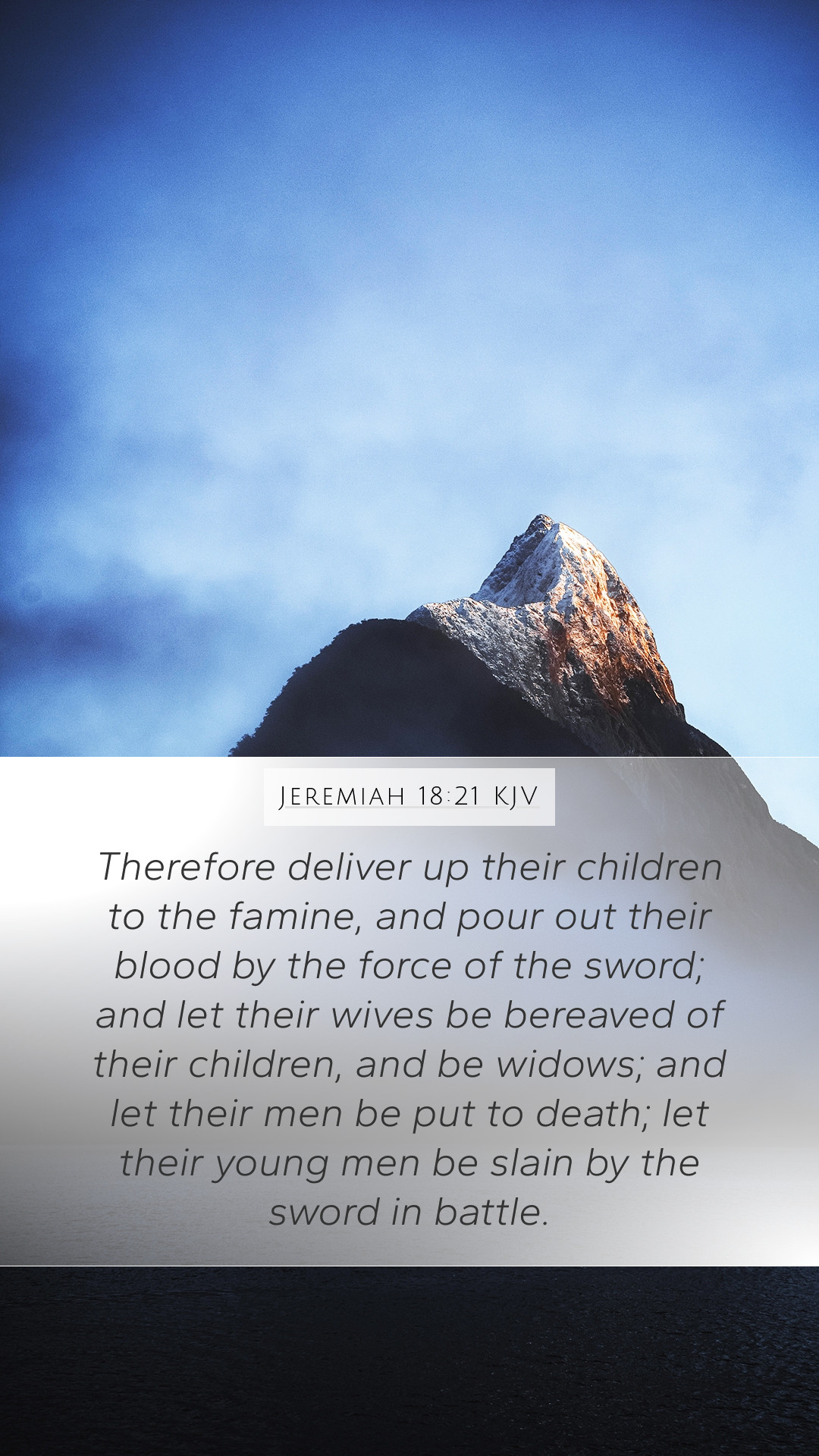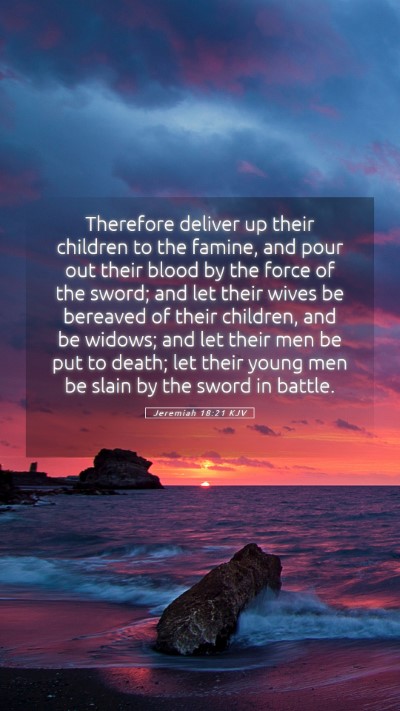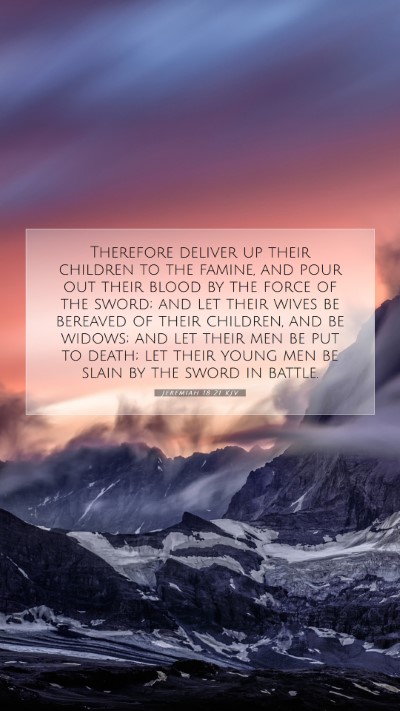Understanding Jeremiah 18:21: A Comprehensive Bible Verse Commentary
Jeremiah 18:21 states: "Therefore deliver up their children to the famine, and pour out their blood by the force of the sword; and let their wives be bereaved of their children, and be widows; and let their men be put to death; let their young men be slain by the sword in battle." This verse, like many in the prophetic books, reflects a period of intense judgment and consequence for the people of Judah. In this commentary, we will explore the depths of this verse through the insights of various public domain scholars.
Context and Background
This verse is part of a larger discourse where God speaks through the prophet Jeremiah to warn the people of Judah about the consequences of their sins. The imagery in Jeremiah 18:21 is stark and severe, envisioning a dire future due to their rebellion against God. Understanding this context is crucial for a deeper interpretation.
Insights from Matthew Henry
Matthew Henry emphasizes the seriousness of the judgment pronounced in this verse. He highlights how this passage is a reflection of God's righteous wrath against a nation that has persistently turned away from Him. He notes that the severity of the imagery serves as a wake-up call for the people to repent and return to God's ways.
- Judgment upon the Wicked: Henry points out that the imagery of children suffering and families being torn apart indicates the far-reaching effects of sin. It serves as a reminder that the ripple effects of individual sins can impact entire communities.
- Call to Repentance: He underscores that these warnings are intended to lead people back to repentance, urging them to understand the consequences of their actions.
Insights from Albert Barnes
Albert Barnes provides a detailed examination of the theological implications of this verse. He notes that while the language may seem harsh, it illustrates the ultimate justice of God. Barnes emphasizes that God's actions are not arbitrary but stem from His holy nature, which cannot tolerate sin.
- The Nature of Divine Justice: Barnes articulates that God's judgments are a necessary response to the wickedness of the people, reinforcing the idea that sin leads to destruction.
- God's Sovereignty: He discusses the sovereignty of God in executing justice, illustrating that human actions have real consequences in the divine economy.
Insights from Adam Clarke
Adam Clarke expands on the emotional weight of the passage, considering the lives impacted by the judgment described. He suggests that the heart of this verse lies in the understanding of personal and communal sin.
- Empathy for the Affected: Clarke emphasizes the grief and suffering of those mentioned in the verse, asserting that any judgment must be understood through the lens of compassion.
- Historical Context: Clarke also connects the message of this verse to the historical events of Judah's eventual downfall, describing how their refusal to heed prophetic warnings led to catastrophic outcomes.
Theological Themes
This passage touches on several key theological themes:
- The Consequences of Sin: The verse illustrates the reality that unrepented sin leads to dire consequences, a recurrent theme throughout Scripture.
- Divine Judgment: It portrays God's rightful judgment against wickedness, emphasizing the seriousness with which He views sin.
- Hope for Repentance: Despite the grim nature of the prophecy, underlying this is an invitation for repentance and a return to God.
Application of Jeremiah 18:21
For today’s believers, this verse serves as a stark reminder that there are consequences to turning away from God. It compels us to reflect on our own lives and communities, urging us to seek repentance and faithfulness.
- Personal Reflection: Individuals are encouraged to evaluate their lives, seeking areas where they may have strayed from God's path.
- Community Responsibility: It calls on communities of faith to uphold values that align with God's will, recognizing that collective actions influence wider societal outcomes.
Cross References
Several other scriptural passages echo the themes found in Jeremiah 18:21:
- Ezekiel 18:30: Calls for repentance and turning from all offenses.
- Hosea 4:6: Highlights the consequences of a lack of knowledge and rejection of God's law.
- Romans 6:23: Discusses the wages of sin as death, emphasizing the gravity of sin's consequences.
Conclusion
Jeremiah 18:21 is a profound verse that captures the severity of God's justice while simultaneously calling for repentance. Through the insights of notable biblical commentators like Matthew Henry, Albert Barnes, and Adam Clarke, we gain a richer understanding of the implications of this verse. Whether for personal reflection or in group Bible study, engaging with this scripture encourages deeper faith and responsibility as we seek to align ourselves with God’s will.
In our journey of biblical exegesis, let us remain committed to experiencing the fullness of God’s word, understanding that Scripture not only reveals divine truth but also invites us into a transformative relationship with the Creator.


